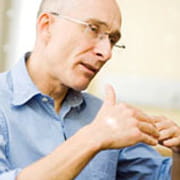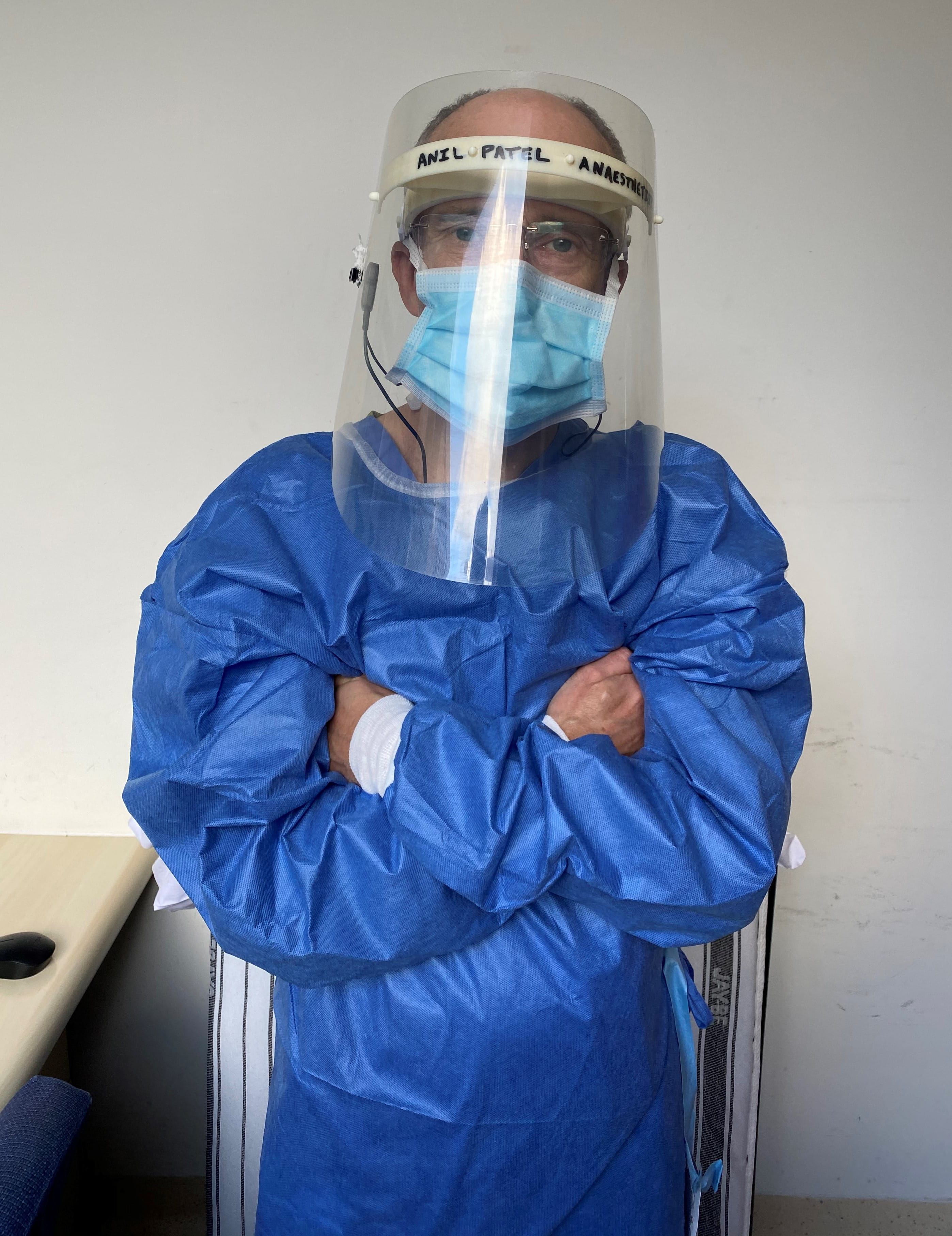Technology can help us to overcome the challenges of wearing full PPE in the operating theatre

20 May 2020
Professor Martin Birchall
Professor Martin Birchall is an ENT surgeon at University College London Hospitals NHS Foundation Trust, Director of the NIHR RCSE Advanced Surgical Technology Incubator and he sits on the Royal College of Surgeons of England’s Research Board.
He recently appeared in the BBC documentary Hospital – which was filmed at the Royal Free Hospital in north London from the first day the UK went into lockdown. In the documentary, he performed an operation on Nancy, a community nurse who has worked for the NHS for 50 years. Prof Birchall carried out an emergency procedure to remove a breathing tube that had become stuck in her larynx. During the operation, ulcers were discovered around her larynx and voice box. The surgical team freed up her constricted airway and placed a much smaller tube inside. It was one of the first confirmed cases of COVID-laryngitis in the UK.
I didn’t know when I turned up at the Royal Free Hospital that day that I would be on television. The first I knew about the operation was the night before. It was the first COVID-19 positive operation I’d done and this was the first COVID-19 positive patient to have any sort of surgery at the Royal Free. We didn’t know at that stage what the risks were and it was frightening.
However, the Royal Free was one of the first to implement proper fit testing and leak testing for an FFP3 mask.When I arrived – as you see in the programme – I was fit tested and leak tested. Both are very important to give you confidence that your mask is doing what it’s meant to do. I passed both of those. It was very reassuring that they’d thought about it and gave me the best possible protection.
It is very difficult to talk when you are covered in full personal protective equipment (PPE), and it is difficult for theatre teams to communicate with one another. The FFP3 masks used, along with full face shields and visors, are restrictive and can hinder the ability of staff to talk and be heard.This is conveyed in the documentary, when after they’ve sealed us into the theatre, the runner outside the theatre is holding a walkie talkie in a plastic bag and she struggles to make sense of what we are asking for.
All surgical teams realised very early on in dealing with this pandemic that theatre communications were a major issue, so we put in place a piece of work with leading technology companies to compare different forms of audio technology.
A UCLH and Royal Free team have been piloting products from Apple, MRTC – the company which provides customised radio and intercom communications for Formula One – and Microsoft to help NHS staff communicate better in the operating theatre.
The MRTC equipment supplied to us is voice-activated and allows anyone who is speaking to talk to the whole surgical team. Apple supplied us with ‘power beats’. These are earpieces staff wear throughout surgery and which do not interfere with their PPE. They enable members of the surgical team to set up virtual networks through FaceTime audio for example, to talk to different members of staff in the team. Microsoft lent us HoloLens – a virtual reality headset. This has enabled medics to do ward rounds on COVID-19 positive wards with only one member of staff physically present on the ward. They have then beamed images and audio back to everyone else in the team, who are sitting in a different room. This last piggy-backs on a major project run by James Kinross, a surgeon at Imperial College Healthcare NHS Trust.
We’re in a position to make recommendations to theatre teams going into surgery in full PPE on how to approach communications. All the systems have clear individual benefits but none is the perfect unified solution to operating and working in full PPE. There is a clear need for someone to develop a bespoke set of equipment for operating theatres.
It’s very important in the coming weeks and months that we keep wearing PPE at appropriate levels, despite the discomfort and difficulties. It doesn’t just protect us but also increases the confidence of patients. Patients need to know that if they come to us for surgery or outpatient treatment, they will be protected as much as they possibly can be. Otherwise, they may make the choice not to come.
Although it has been challenging for everyone on the frontline during this pandemic, it has also been a humbling experience. It’s been wonderful to be part of a National Health Service that has responded as one to the biggest challenge that we’ve ever faced. The response of surgeons, doctors, nurses and operating department practitioners locally and nationally has been tremendous. We should be extremely proud as a profession of the contributions everyone has made.
Professor Martin Birchall wearing PPE. On the topic of PPE, he states that 'it’s very important in the coming weeks and months that we keep wearing PPE at appropriate levels, despite the discomfort and difficulties.'
Professor Birchall shared his team’s findings in our webinar on 20 May 2020, hosted by President of the Royal College of Surgeons of England, Professor Derek Alderson.
This blog is from our series COVID-19: views from the NHS frontline. If you would like to write a blog for us, please contact content@rcseng.ac.uk.

